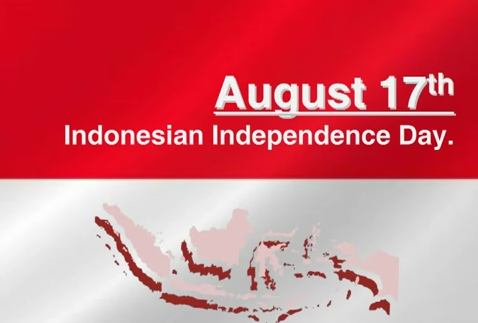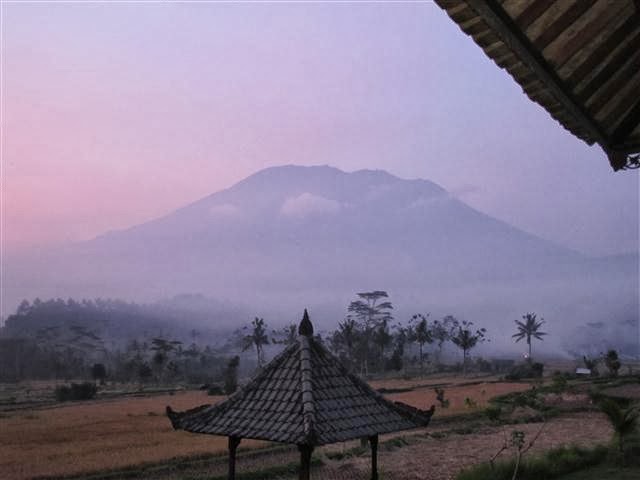Indonesia's Internet is increasingly
becoming a free-speech battleground
Issues
surrounding that old chestnut, freedom of speech, have started to make waves
across the globe over the last few years. The reason that this time-honoured
benchmark of democratic freedom is once again becoming a front-line political
battleground is the all-conquering reach of the Internet and our new social
media.
In recent years, autocratic Arab governments have been toppled and rioters
have taken to the streets to terrorise England and in both cases, Twitter,
Facebook and BlackBerry Messenger had major roles to play. So when exactly does
Internet use become a public menace? What can be considered defamatory and
libellous in our wired world? Is it government's role to be putting checks and
balances on the new connectivity? Are politicians simply superannuated,
nation-state dinosaurs running scared of the new light-speed social currents
that zap like digital pinballs around nodes of common interest? Are we headed for Julian Assange's nightmarish vision of an Orwellian future?
Indonesia
has had its own dilemmas to grapple with vis-à-vis the new social media
paradigm of course. On the one hand, Indonesians are possessed of a natural sociability
that has seen them take to these technologies like ducks to water. Indonesia
has 43.1 million Facebook users (making it the world's third-largest population
of Mark Zuckerberg disciples) and BlackBerry Messenger reigns supreme here,
despite these devices currently facing collapsing sales around the rest of the
world.
On
the other hand though, Indonesia’s still relatively autocratic, paternalistic
and, above all, corrupt political and judicial systems have been left
floundering by the new so-called "hacktivism" and there have been
plenty of techno flashpoints of late that have made those in power seem rather
lugubrious and heavy-handed.
Virtual
alarm bells first started ringing a few years back when Indonesian
mother-of-three, Prita Mulyasari, was handed down a suspended jail sentence for
libelling Tangerang's Omni Hospital in an e-mail that she sent to a group of
her friends expressing her dissatisfaction with the hospital's service.
Everyone from freedom-loving Facebook fans to highflying lawyers sprang to
Prita's defence, arguing that criticism of public or private services most
certainly doesn’t constitute liable.
The
country's draconian ITE (Electronic Transactions Law) would suggest otherwise
however. Controversial Communication and Information Technology Minister,
Tifatul Sembiring, has stated that there are five boundaries in the cyber world
that the ITE outlines should not be crossed, and these pertain to issues of
pornography, gambling, threats, fraud and blasphemy. However these five deadly
virtual sins also include information and posts that may, "disturb the
public," or which, "attack or offend public figures."
Mr.
Sembiring, a member of the Islamic-leaning Prosperous Justice Party (PKS) has
proved a polarising figure during his time looking after the country's
information superhighway and has often been ridiculed for his censorious
approach to the newly connected Archipelago. After a failed and ultimately rather
futile attempt to keep Internet pornography from polluting Indonesian waters,
Mr. Sembiring has more recently, and rather ominously, turned his attention to
the country's avid Tweeters.
After
learning that Twitter is filled with anonymous accounts that are often used to
insult and attack other users, Sembiring stated that such rogue Tweeters could
find their accounts being shut down and has even threatened that they could
also have their devices and positions traced with a view to prosecuting them. Mr.
Sembiring has also been pressuring RIM, makers of the ubiquitous BlackBerry, to
set up servers in Indonesia, as those millions and millions of BlackBerry
messages currently travel to their recipients via RIM's Canadian servers, well
beyond the grasp of elite Indonesian political control, scrutiny and
censorship.
This
latter initiative is perhaps revealing of the fear that really underlies
Indonesia's still pretty autocratic political elite’s stated concerns about
libellous posts that, "disturb the public." The Arab Spring has seen
the rise of so-called "citizen journalism" and mobile-phone cameras are
now regularly used to document abuses of power. The use of social media to
organise popular dissent through channels that completely circumvent
traditional government information filters and controls has also proved crucial.
The
Arab Spring has undoubtedly been spectacular, however there are also dangers
involved in the greater free speech and popular organisation that the web
promises. Alas, our new networked, free-thinking paradigm has the potential to
crash into the immovable object of Indonesia’s traditional, long-held beliefs
with a loud clatter. The recent case of Alexander Aan is a case in point. Mr.
Aan posted the phrase, "God does not exist" up on his Facebook wall
and subsequently survived a mob attack before being taken into custody by the
West Sumatra police and charged with blasphemy.
The
still-pretty-inchoate Internet so often acts as a mass vanity-induction device,
a huge ego-feeding mechanism that encourages self-congratulatory, mutual
backslapping between those who share opinions and tastes. The inverse is also
true, and the net is also filled with abrasive but equally self-congratulatory broadsides
and abuse that are directed against those that would dissent from one's
cherished pearls of wisdom. This is the downside of the Internet. However it is
becoming increasingly clear that the web can also be a space for public
exchange, free debate, expression, organisation, enquiry and activism, a space
that still evades society’s normal systems of information control.
All
opinions find a voice on the Internet, which perhaps ill suits traditional
notions of Indonesian hegemony, harmony and consensual decision-making. As the
web continues to spread its tentacles throughout the country though,
Indonesians are getting to hear voices and opinions that they've never previously
been exposed to before. Give a man a mask and he'll tell you what he really
thinks, or so the old saying goes. Give him an anonymous and untraceable
computer terminal though and you won't be able to shut the fellow up.
The
new digital debating club challenges imposed wisdom and the specious harmony that
masks a sea of social ills, and the Indonesian boat is currently being rocked
by these new technological currents. It could get rough out there but nothing
less than a transformation of Indonesia's collective consciousness is up for
grabs as we steer towards oceans new.













































